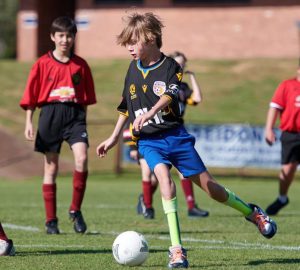In my twenty plus years of coaching, I have come to terms with one thing for sure; that limitations in performance are seldom rooted in the body. The truth of it all is that we are a bazillion dollar biowonder operating on $9.99 software. I like to use the analogy of the smart phone as most of us can relate to their ubiquity. How would you treat your device if you were born knowing that you would have but one for the duration of your life, that you could never replace it, and that its neglect would negatively affect all of your tasks and experiences?
We live in a world of action and distraction where we constantly strive to do more and experience more things. And when we aren’t, we find ourselves seeking distraction. Our mind’s growing inability to keep up has negative consequences which affect our wellbeing, performance and our longevity. Without resting, recalibrating and defragmenting the mind, we start to have skewed perspectives on what we deem stressful. We impair our ability to focus and negatively affect our mood and our physiology. Stress is a well-known contributing factor to disease and to decreased quality of life. Stress is the physical manifestation of the thoughts and pressures we entertain. In this way, meditation allows us to singlehandedly decrease the physiological consequences of stress while decreasing the amount of perceived stress in our lives. We are glitching out unnecessarily!
Mental Fasting
In the realm of strength and conditioning it is well established that persistent training stimuli without adequate rest inevitably yields a decrease in performance, and is a detriment to progress. The same rings true for dietary fasting, where periods of caloric abstinence allows for the recalibration and renewed sensitivity of metabolic processes. The mind also requires rest, time to recalibrate and re-attune to the senses bringing with it increased awareness and mental acuity. The absence of thought or more realistically, the slowing of the thought train allows for a decreased stress response, improvements to our mood and our physiology not to mention increased perceptivity and focus. There are countless peer-reviewed studies demonstrating a plethora of benefits from the practice of meditation and it is no coincidence that the wisest and most evolved beings and cultures on the planet have been practicing meditation for tens of thousands of years.
Meditation – The Art of Being
So where do we start? As a meditation coach, I would love to tell you all about the various types of mantras, breathing techniques, and the healing benefits of hums, chants and vibrations. But the nuts and bolts of meditation lies in the practice of stillness and breathing. Connecting with your breath by consciously deepening your respirations and observing your thoughts without judgment is the essence of meditation. It is important not to react or become frustrated or disappointed from the presence of thoughts or from the straying of the mind as this is counterproductive. What is important to remember is not what you are doing when you are meditating, but rather, what you aren’t doing. Many people shoot themselves in the foot early on by having expectations or by putting pressure on themselves to think about nothing. Even the most experienced meditators use tools to help them increase the space between thoughts. Over time, conscious breathing becomes second nature and the number of thoughts that pops into our minds steadily decreases. There are endless tools for funneling our awareness and bringing focus to our thoughts. It might be good to learn about your mind by seeking help in exploring what meditation tools resonate with you.
Most importantly, meditation is like any other form of training whereby its benefits are directly proportional to the dedication one brings to the practice. Whether you are looking to improve your wellbeing, personal relationships, athletic and/or work performance or all of the above, meditation is the cornerstone of wellbeing and performance and should be practiced by anyone with a mind.
By : Jean-François Dufour (MKin & BSc)




